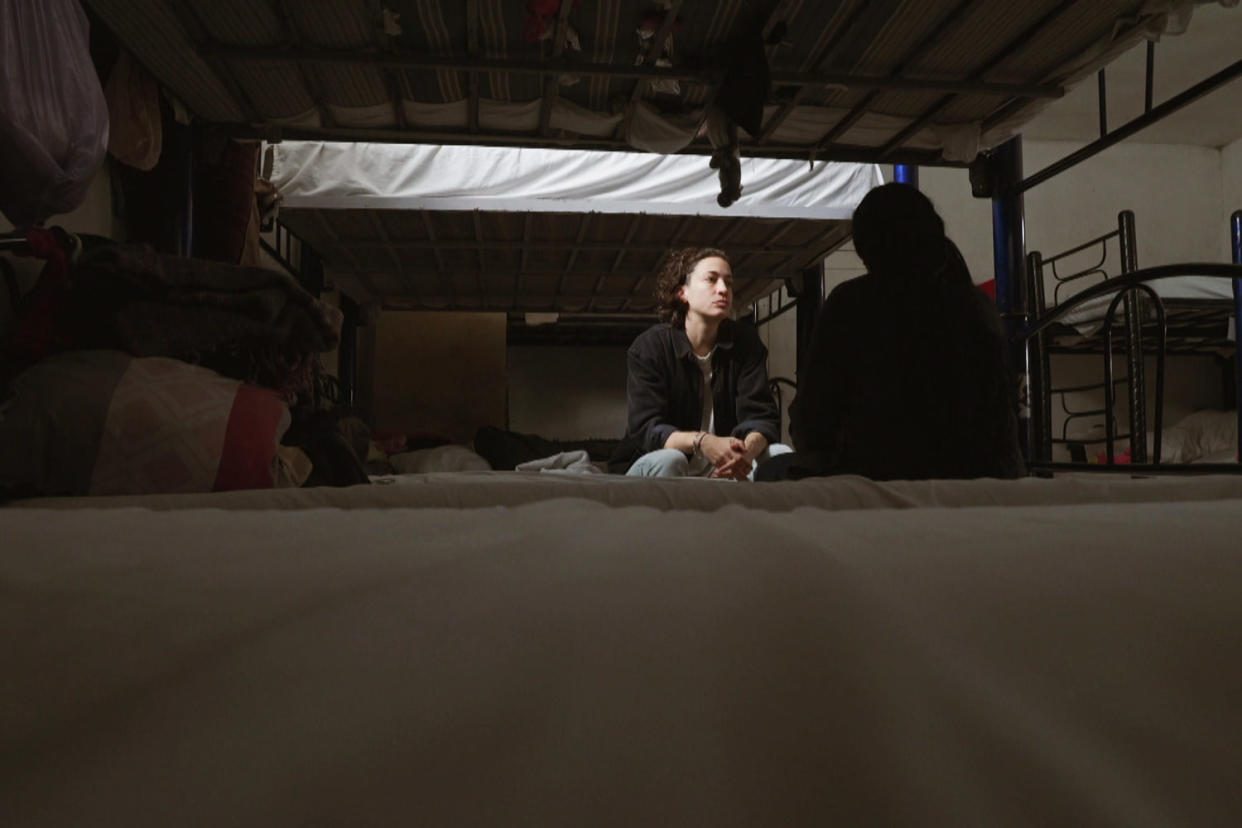Migrant women raped before crossing the border grapple with restrictive U.S. abortion laws
Six weeks after a young asylum-seeker from El Salvador crossed into the U.S. from Mexico, she realized she was carrying a rape-related pregnancy.
The woman — who like the other women interviewed for this article aren’t being identified for security reasons — said she was sexually assaulted by the Mexican cartel that was holding her hostage in the dangerous border town of Reynosa, in the Mexican state of Tamaulipas, just a few miles from the U.S. border.
Once in Texas and unable to get an abortion, she found herself stuck between America’s immigration system and the state's abortion ban.
She’s not alone. She’s one of an alarming number of migrants who are entering the U.S. with unwanted pregnancies. She’s also a victim of a disturbing pattern of violence that’s emerging on the Mexican side of the border, where cartels are systematically kidnapping and collecting ransom from migrants on their way north. Those who can’t pay with money are made to pay with their bodies.

Without knowing English and overwhelmed by the complex legal landscape surrounding reproductive rights, the Salvadoran migrant resorted to online forums to find information about how to access abortion pills. She soon learned she needed a combined dose of mifepristone and misoprostol, the Food and Drug Administration-approved regimen for medical termination of pregnancy, which has been banned in 14 Republican-led states, including Texas, since the Supreme Court overturned Roe v. Wade in 2022.
Afraid of what could happen to her in Texas, she traveled to a nearby state to undergo a self-managed medication abortion. “I felt ashamed of myself. It was like my head was telling me that everyone knew, but really, no one knew anything,” the woman said.
'This is what happens to you for not paying ransom'
“More than 20 people started to rape me. They told me, ‘This is what happens to you for not paying ransom and so you remember that Mexican territory is respected,’” a female asylum-seeker from Guatemala told NBC News.
From October to December 2023, Doctors Without Borders, one of the few organizations on the ground in the region, recorded a 70% increase in consultations for sexual violence in the Mexican border towns of Reynosa and Matamoros compared to the previous three months. In the first two months of 2024, it has already recorded nearly 70 cases of sexual violence against migrants in the same area.
The Guatemalan asylum-seeker is one of them.
She said she was forced to leave Guatemala with her husband and two young daughters last year after they received death threats from the same gang that killed nearly half of her family. Their journey north was met with unimaginable violence after the Gulf Cartel, one of Mexico’s deadliest organized crime groups, intercepted the bus she and her family were traveling on from the Mexican city of Monterrey to Reynosa. The bus was full of migrants headed to the border.
“A white truck pulled in front of us, and men dressed in black got on the bus and started saying, ‘We’re from the Gulf [Cartel].’ My husband looked at me and said, ‘They’re going to kill us.’”
The Gulf Cartel was founded in Tamaulipas in the 1980s. The group has different armed factions controlling the border cities of Nuevo Laredo, Reynosa and Matamoros, and it is one of the dominant trafficking organizations engaging in maritime smuggling to South Texas.

In recent years, the rise of irregular migration has offered the Gulf Cartel another lucrative opportunity: It is kidnapping migrants for ransom and weaponizing sexual violence as yet another form of extortion.
“They undressed me in front of my husband and started beating me because I told them I didn’t have any money,” she said. “‘Then you’ll pay us with your body,’” the cartel replied, she said. NBC News couldn't corroborate her testimony, but three other migrants interviewed for this article described almost identical experiences.
Throughout the years, organized crime groups have leveraged the long waiting periods migrants have been subjected to on the Mexican side of the border. The waiting periods are the result of policies such as former President Donald Trump’s Title 42, the pandemic-era law that allowed the government to turn away migrants, including asylum-seekers, at the border, as well as the Remain in Mexico program and, more recently, President Joe Biden’s CBP One App process. All of those policies have pushed migrants to wait in some of Mexico’s most dangerous cities until their immigration appointments are scheduled, which may take months.
Jennifer Harbury, an activist and lawyer who has been advocating for human rights in Latin and Central America for over 40 years, denounced the recent policies.
“These are mothers with tiny children, young men who have refused to become drug smugglers, old people who have been pushed out of their homes,” she said. “They’ve been through hell on Earth, and they’re dying because we [the U.S.] keep pushing them back. We’re killing refugees.”
Custom and Border Protection didn’t immediately respond to a request for comment. According to CBP, the “use of the CBP One™ app to schedule appointments at land ports of entry has increased CBP’s capacity to process migrants more efficiently and orderly while cutting out unscrupulous smugglers who endanger and profit from vulnerable migrants.”
Some migrants disagree.
“Right now, many people are getting on buses and asking [passengers] if they are going to their appointments,” said a young Mexican woman who decided to migrate to the U.S. because of escalating violence from cartel factions operating in her region.
She has seen the way the cartels are systemically exploiting the situation. “Some people say yes and they are taken off the bus, their bags are checked, and they are stripped of all their money. They are also beaten so the captors can send a video to their family members and show that they are truly kidnapped. With these appointments, everything is spiraling out of control.”
Taking matters into their own hands
The politics of abortion in the U.S. is affecting migrants who have been victims of sexual assault on their way to the border, such as the Salvadoran asylum-seeker who was confronted with the Texas abortion ban.
Weeks after she went through her own self-managed medication abortion, she came across an unexpected opportunity in Texas: She found five doses of misoprostol, one of the abortion pills she once used. She knew she could be penalized for distributing the pills, but she decided to break the state's law and help other women going through similar situations.
“I have two options: Either I harm my record or I help — I said, ‘I prefer to help, and whatever happens happens.’” She gave her last dose to a recently arrived migrant in Texas who also learned she was pregnant after she entered the U.S. “She told me, ‘I just got here, and I am pregnant. I need the pills.’ I said, ‘OK, I am going to drop them off.’”
In doing so, not only did the Salvadoran migrant go against the state’s law, but she also risked her own immigration status in a state that is trying to impose criminal penalties on migrants.
Yet she said the urge to help outweighed her fear. It drove her to lend a hand to a group of people trapped in the dangerous overlap of America’s immigration and abortion policies — a gray zone migrants may not fathom as they’re making their way north, toward that so-called American Dream.
For more from NBC Latino, sign up for our weekly newsletter.
